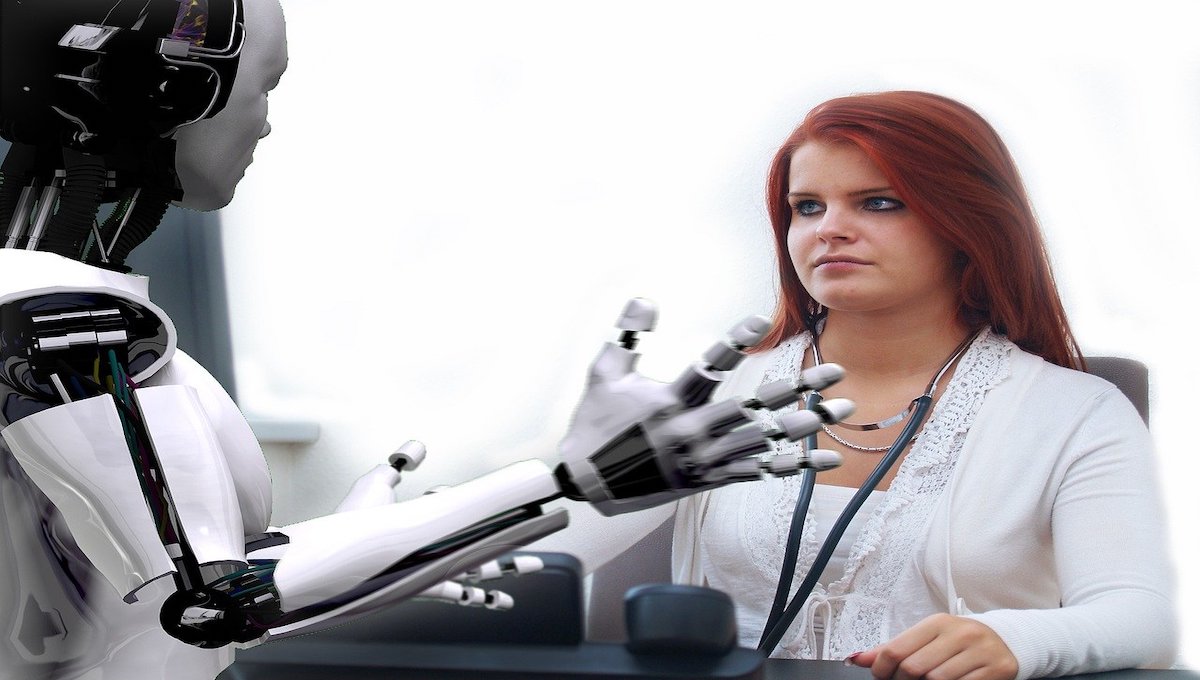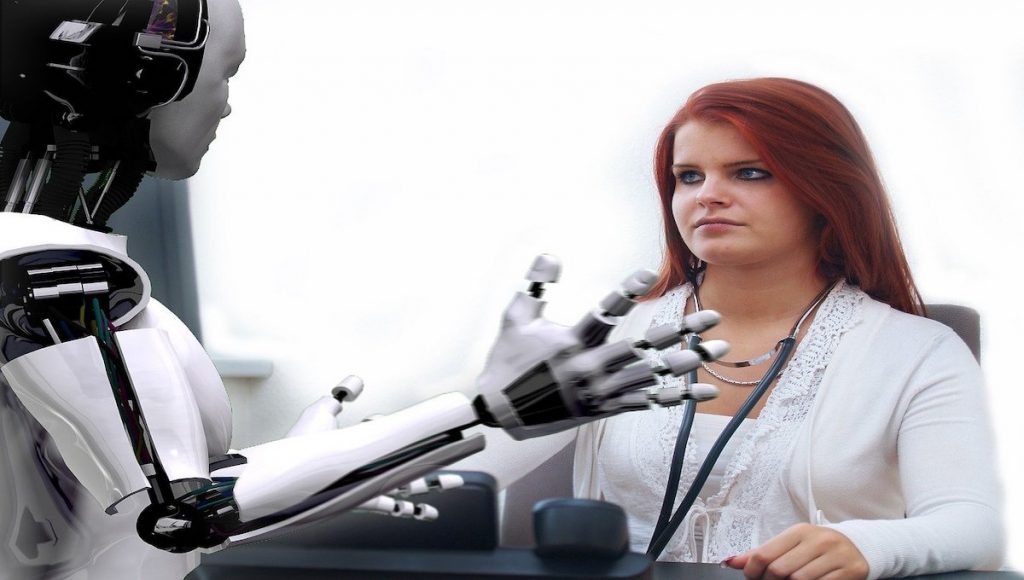It was never so visible to everyone. The current pandemic has underlined one shockingly fast development – the one, where AI technology and the health industry are joined and collaborate as never before. The future of healthcare, with advances in digital healthcare technologies such as 3D-printing, artificial intelligence, VR/AR, robotics, or nanotechnology, is currently right in the spotlight. Let’s explore how medical technology is efficiently reshaping healthcare.

The closest future
The latest developments are at our hands, but, to get to know them, we need to get familiarized with some scientific explanations. We must control technology, and not the other way around! AI technology and healthcare workers need to cooperate and embrace emerging healthcare technologies in upcoming years.
Will robots take over the jobs of nurses and doctors?
If you are scared that artificial intelligence will control the world within a couple of years or if you have nightmares about virtual reality, where we all live like zombies, then stop. Artificial Intelligence in the field of science will only serve us for the best!
Dystopias, half-truths, and fake news
The fear about the unknown future, and about what it might bring upon us, is a real thing. Yet, no matter how scary it seems at the moment, we should pursue AI technological development in the field of science, especially medicine, because it’s saving lives. There is no doubt that our lives will be transformed soon, through various AI technologies. However, fear shouldn’t push us away from developing. We should overcome thoughts that make us anxious about the future. An open mind and an optimistic vision about the change is what we should be armed with.
Which road to take?
Technology can aid and improve our lives. The cooperation between people and technology will result in amazing achievements. Assuming that the goal can be summarized as healthier individuals living in healthier communities, digital technology could help transform unsustainable healthcare systems into sustainable ones. It can also equalize the relationship between medical professionals and patients, as well as provide cheaper, faster, and more effective solutions for diseases. Together, we can win the battle against cancer, AIDS, Ebola, or… the novel coronavirus!
A few words about Artificial Intelligence
It has been proven that Artificial Intelligence (aha AI) has the potential to redesign healthcare completely. Mining medical records, designing treatment plans, creating drugs faster? No medical professional can achieve comparable perfection in all these fields. In 2015, the start-up Atomwise launched a virtual search for safe, existing medicines that could be redesigned to treat the Ebola virus. As a result, they found two drugs that may significantly reduce Ebola infectivity. The same with breast cancer analysis. Google’s DeepMind algorithm outperformed all human radiologists on pre-selected data sets to identify breast cancer on average by 11.5%. These are only two of multiple examples, so imagine what the future will bring!
When it comes to virtual reality…
VR is being used, for example, to train future surgeons. It’s also utilized by actual surgeons to practice operations. In the future, we will watch operations as if we wielded the scalpel. Software programs of a kind are developed and provided by companies like Osso VR and ImmersiveTouch. VR-trained surgeons had a 230% boost in their overall performance! They were faster and more accurate in performing surgical procedures. The AI technology is also benefiting patients when it comes to pain management. Women equipped with VR headsets who visualize soothing landscapes are calmer when they go through labor. Also, cardiac, gastrointestinal, neurological, and post-surgical pain have shown a decline in their pain levels when using VR for distraction.
What about augmented reality?
When it comes to augmented reality, users don’t lose touch with reality. AR technology puts information into eyesight as fast as possible. These distinctive features enable AR to become a driving force in the future of medicine. How? It might help, for example, medical students prepare better for real-life operations. It also enables surgeons to enhance their capabilities. At Case Western Reserve University, students are using the Microsoft HoloLens to study anatomy via the HoloAnatomy app, having access to virtual, detailed, and accurate depictions of the human anatomy.






